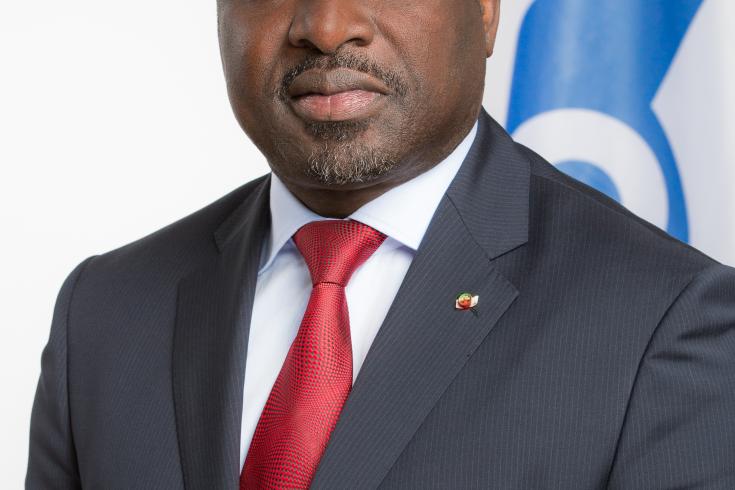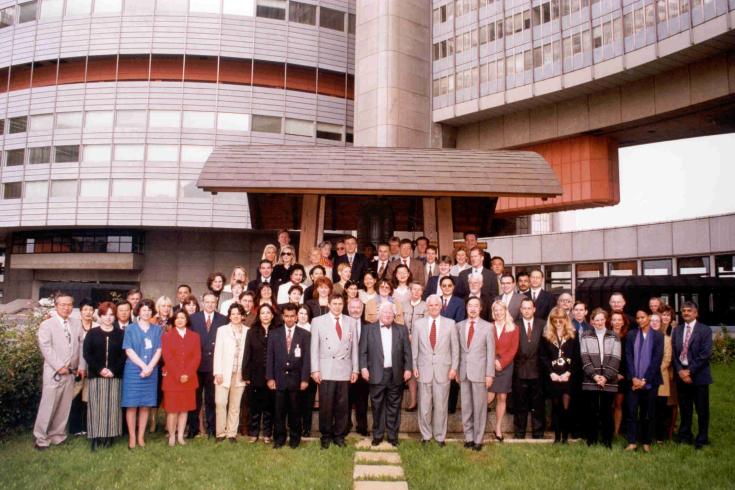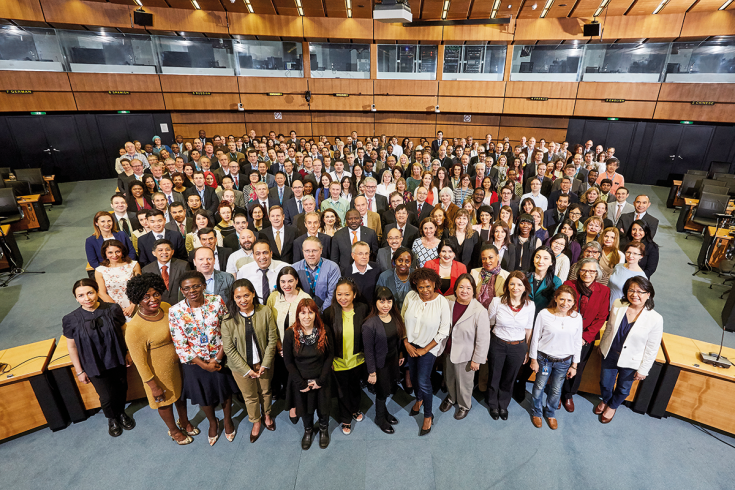Statement by the Executive Secretary on the occasion of the 20th anniversary of the establishment of the CTBTO PrepCom in Vienna
Vienna, 17 March 2017

CTBTO Executive Secretary, Lassina Zerbo (2013-present)

CTBTO Staff in 1997

CTBTO Staff in 2016

CTBTO's second Executive Secretary, Tibor Tóth (2005-2013)

CTBTO's first Executive Secretary, Wolfgang Hoffmann (1997-2005)
17 Mar 2017